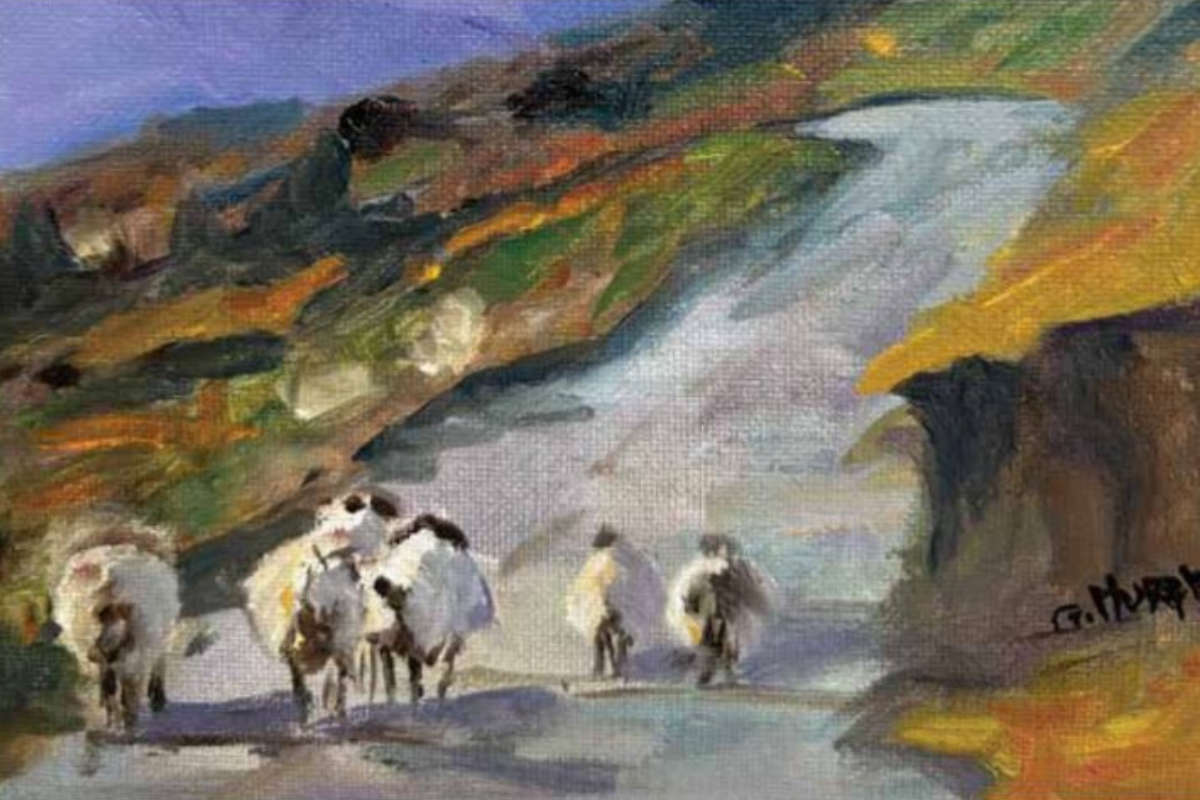
Six tips for older people, and for their carers, friends and relatives, to be ready for the winter ahead.
With winter beginning to make its presence felt across the country, and the Government and Met Éireann issuing their winter ready advice, Home Instead offers some useful tips and practices that can be put in place to ensure our older relatives, friends and neighbours stay warm, safe and cared for over the winter months.
Regardless of age, winter weather can pose risks of injury and illness, but harsh winter conditions can be particularly challenging for older people living at home.
Home Instead, Ireland's largest private provider of home care services, has outlined six tips for older people, and for their carers, friends and relatives, to be ready for the winter ahead.
Winter clothing:
Older adults can have more trouble regulating their body temperature, and significant drops in internal temperature could lead to serious health complications. Wearing several thin layers of clothes, instead of one heavy layer, and ensuring all internal windows and doors are closed to keep heat in, will keep them warmer for longer throughout the day.
Shop for your relatives and neighbours:
Many older people may not be in a position to get to the shops regularly in wet, cold and dark conditions, or may be reluctant to go shopping as Covid-19 cases rise again. Offering to do a grocery shop for your older neighbour, friend or relation can help them to have all their essentials to hand. You can also offer to buy solid fuels, pick up medical prescriptions and other household necessities.
Eating well:
It is important to eat regular hot meals, as the body keeps warm by burning the food we eat. As an example, porridge is an excellent source of nutrients, which is quick and easy to prepare and fuels the body for hours. Friends and relatives can also help by ensuring that there is plenty of tinned fruit and vegetables and non-perishables such as pasta and rice in stock.
Winter-proof the home:
Rain and icy conditions can increase the chance of slips and falls. Clearing pathways of wet leaves which pose a trip and slip hazard can help mitigate this risk. Blocking draughts and keeping curtains closed at night are important in helping to retain heat and keep the house warm. Ensuring electrical devices are unplugged at night will also help reduce the risk of occurrences such as fires.
Stay connected:
It is easy to get caught up in the hustle and bustle of our own lives, but it is important to check in and connect with family and friends. Many people suffer from increased loneliness and depression during winter due to Seasonal Affective Disorder (SAD). It is crucial that family, friends and neighbours check in on older loved ones to make sure they are prepared and safe this season.
Plan for Emergencies:
It is important to be prepared for emergencies such as power cuts or extreme weather so that vulnerable people in particular don't have to venture outdoors. Ensuring that there are torches, batteries, fuel and non-perishable food is important.
In the unfortunate event that a medical emergency does occur, it is also important to be prepared, by ensuring that all emergency and family contact numbers are close at hand, and that the Eircode is kept beside the phone to assist emergency services in reaching a property as quickly as possible.
National Clinical Lead at Home Instead, Danette Connolly, said: "Ensuring our older relatives, friends and neighbours stay safe over winter is the responsibility of all of us. We would ask people to please make an extra effort to check in on older family and friends over the coming weeks and make sure they are winter ready.
"It is important that older people eat regular hot meals, and dress as warmly as possible this winter. Make sure the house is well-stocked with the essentials, such as batteries for the smoke alarm, fuel, medicines - particularly repeat prescriptions - and plenty of non-perishable foods, so they don't have to venture out in the cold and dark.
"Just as importantly, winter can be a lonely time for all of us - not just older people - so please make an effort to stay connected with your friends, neighbours and relatives this winter."


 Electric Picnic Introduce Campsite Pre-Booking Options
Electric Picnic Introduce Campsite Pre-Booking Options
 LOETB Recognised In National Excellence Awards
LOETB Recognised In National Excellence Awards
 ‘The Ubiquitous Collection’ To Be Exhibited In Tullamore
‘The Ubiquitous Collection’ To Be Exhibited In Tullamore
 21 New Acts Revealed For Forest Fest
21 New Acts Revealed For Forest Fest
 Chappell Roan and Hozier Added To Electric Picnic Lineup
Chappell Roan and Hozier Added To Electric Picnic Lineup
 Offaly Arts Centre To Host Official Launch Of BIOPHILIA Art Experience
Offaly Arts Centre To Host Official Launch Of BIOPHILIA Art Experience
 Offaly Comedian Bringing 'Village Of Characters' With Him On Tour
Offaly Comedian Bringing 'Village Of Characters' With Him On Tour
 Stats Need To Back Up Statements Online - Midlands Social Media Lecturer On Garron Noone Controversy
Stats Need To Back Up Statements Online - Midlands Social Media Lecturer On Garron Noone Controversy
 Community Orchestras Joining Forces In Westmeath This Weekend
Community Orchestras Joining Forces In Westmeath This Weekend
 Electric Picnic Apply To Increase Number Of People Attending
Electric Picnic Apply To Increase Number Of People Attending
 Look back on Forest Fest 2024
Look back on Forest Fest 2024